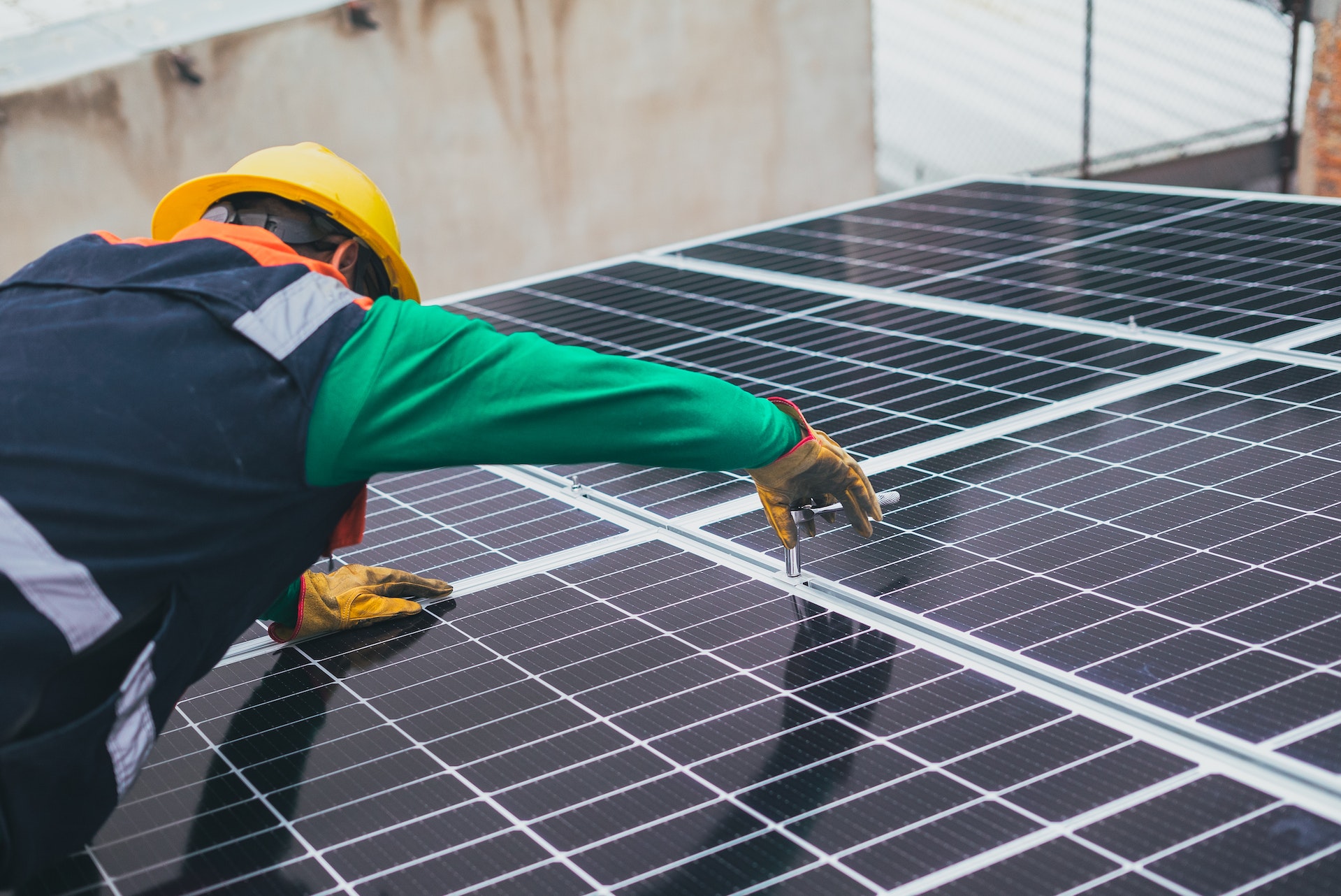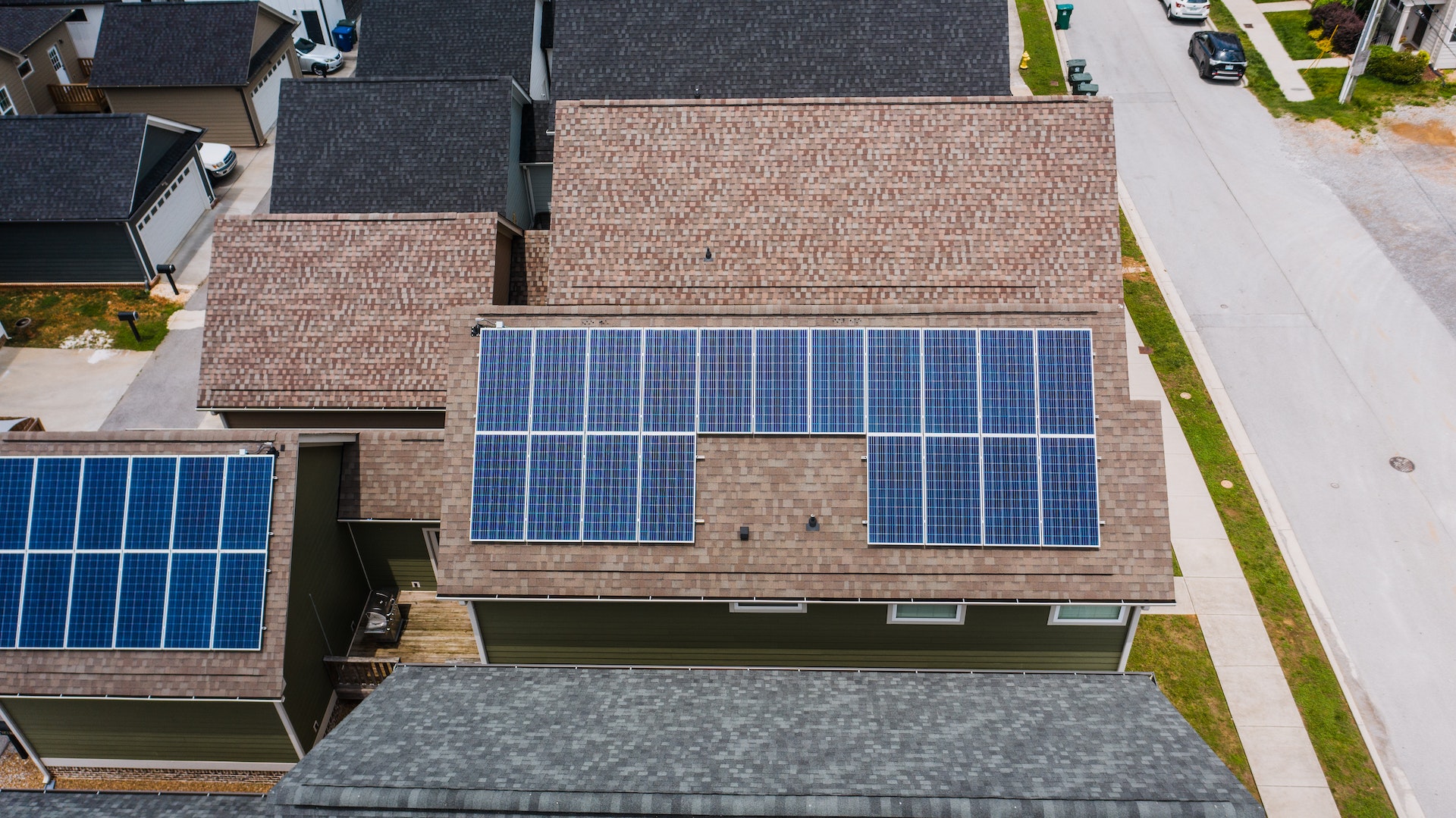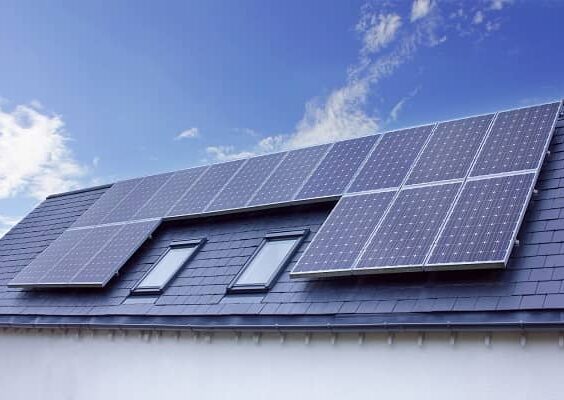It’s no secret that the cost of electricity is rising. Each year, it seems that your bill is higher than the last. And bills are only going to continue to get more expensive.
This is even more of a problem for people who live in areas that get a lot of sunlight. Luckily, there is an alternative solution for cutting down on your electric bills. Installing solar panels in your home allows you to harness that power for your own use instead of simply wasting your money by paying for it to be sent to the grid.
It depends on a few different things, so the process of determining exactly how many are going to be different for each house in its area. Read on to get the lowdown on how many solar panels you need for your house!

Contents
Desired Output
The number of solar panels you need for your home will depend on the total amount of solar energy you need each day. The more energy you require, the more solar panels you will need. Figure out the average energy output from the panels per hour.
Generally speaking, you’ll need approximately ten to twenty solar panels installed if you’re aiming to cover 100% of your electricity needs. It’s important to consider factors such as the amount of available space for the installation.
Additionally, you may need an inverter or other equipment to store the solar energy so you can use it when needed. Ultimately, the amount of solar panels you need is determined by the amount of energy you need to power your home.
Number Of Appliances
Generally, the higher the number of appliances and the higher their wattage, the more solar panels are needed. Calculating the number of solar panels required depends on the exact number of appliances with their exact power rating and total usage in kWh. As a rule of thumb, if the total wattage of all the appliances is 4500 W, you will need nine 375-Watt solar panels. The number of panels can also be reduced by distributing appliances across multiple days, especially those that use energy intermittently, such as a swimming pool pump.
Available Space
When considering the number of solar panels needed for a home, the amount of available space should be taken into consideration. An ideal solar panel installation for a home should have plenty of room for additional panels in the future in case solar production needs to be increased.
Depending on the size of your home, you could need anywhere from two to twenty panels to generate sufficient solar energy. If you’re still unsure of how many solar panels you need for your home, it’s best to seek professional advice from a solar energy installer to get a better idea of the number and size of panels required.
Area’s Sun Exposure

Areas of sun exposure play an important role in determining how many solar panels you need for your home. It is important to understand the amount of sun exposure your area gets in order to properly calculate the number of solar panels needed. Areas with high sun exposure which receive numerous hours of direct sunlight throughout the day will be more efficient in reducing your energy needs and will require fewer solar panels than areas receiving less direct sunlight.
For example, in places like Arizona, which has plenty of sun exposure, it will take fewer solar panels to reduce the same amount of energy needed as compared to places such as Massachusetts. Additionally, places that have more cloud cover and frequently experience rain will also require more solar panels. Therefore, understanding the area’s sun exposure, your energy needs, and the environment you live in is extremely important in order to decide how many solar panels you need for your home.
Size and Shape of the Home
The size and shape of a home will influence the number of solar panels that are needed. Larger and more complexly shaped homes will require more solar panels to generate adequate energy. For households that have a typical 1,800-square-foot home, about 16-20 boards would be required to power the space, depending on the current energy consumption level.
The panel count may increase beyond the 20-panel mark for homes with a higher energy usage level. Homeowners should strive to install the proper amount of solar panels to ensure efficient energy capacity and effective energy savings. The size and shape of the home will heavily influence the solar panel counts a home requires.
Potential Future Energy Needs
For homeowners looking to reduce their energy consumption, solar panels provide an excellent source of renewable energy. Take into account any plans for renovations or additions that may increase your energy needs. You also need to consider future growth in energy requirements, such as acquiring electric vehicles or new electronics, so you should plan to have a system that can scale up in size.
If you are only utilizing solar power for some of the appliances and gadgets, fewer panels may be able to provide the necessary energy. Ultimately, the number of panels you need for your home depends on your personal electricity needs.
Assess Long-Term Investment Benefits With Solar Panels
Solar energy has become a valuable long-term investment for many homeowners. By calculating how many panels are needed to offset a portion of the home’s power requirements, you can determine the optimal investment for your home and lifestyle. With solar panels becoming more mainstream, now is an excellent time to consider if it is right for your home.
Research your options, assess the long-term investment benefits, and talk to a pro to find the best solution for you. Make the switch today and start reaping the rewards with solar energy.
Interested in learning more? Then be sure to explore our blog for all of the answers to your question!




